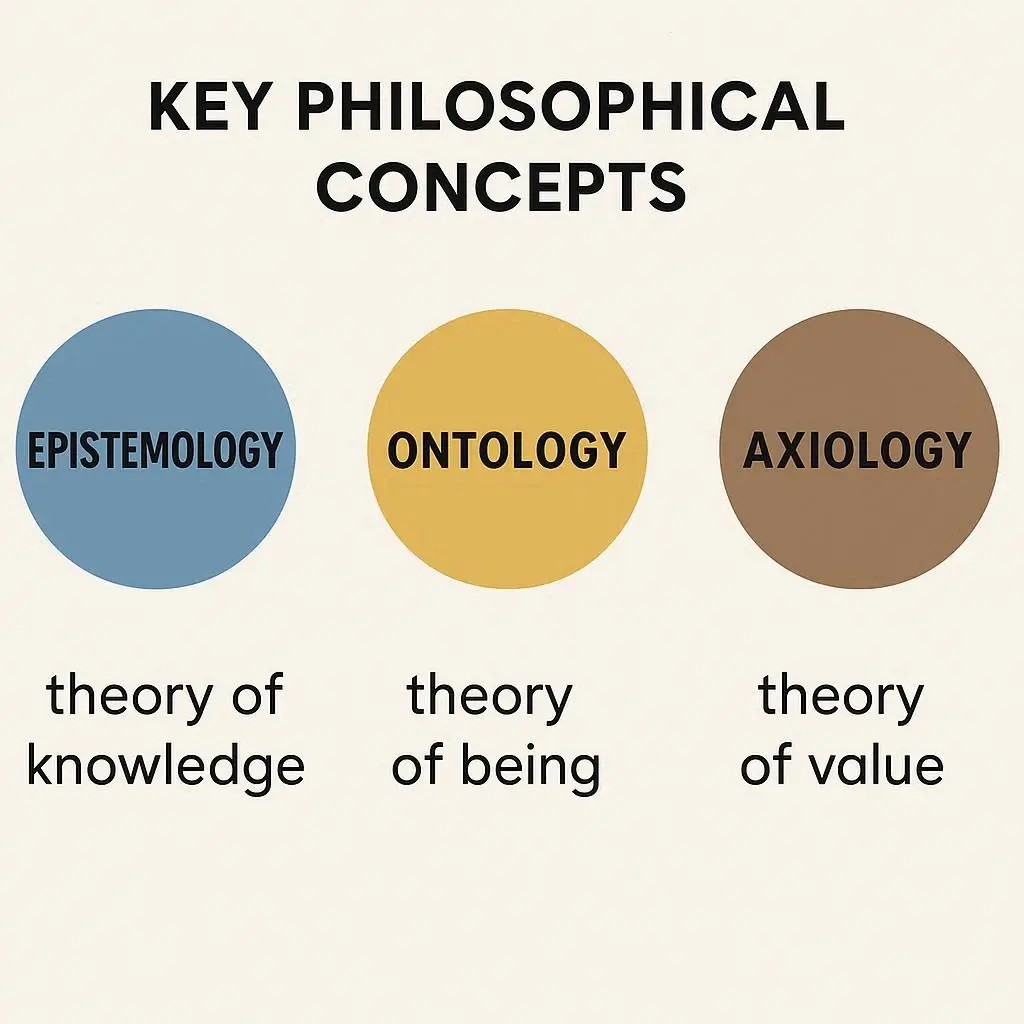The Pillars of Research Philosophy
An Interactive Guide to Epistemology, Ontology, and Axiology
What Are These Concepts?
Epistemology, Ontology, and Axiology are the three main branches of philosophy that form the foundation of any research study. They provide a framework for how we view the world, what we consider to be valid knowledge, and the role our values play in the research process. Understanding these pillars is crucial for designing, conducting, and interpreting research with clarity and rigor. This guide allows you to explore each concept, compare their roles, and see how they apply in practice.

Epistemology: The Theory of Knowledge
This branch addresses how we come to know what we know. It is concerned with the nature, origin, and scope of knowledge, its justification, and the rationality of belief. In research, epistemology shapes the choice of methods and determines what counts as valid data and evidence.
Key Questions
- What is knowledge, and how is it different from opinion?
- How can we acquire knowledge of the world?
- What are the limits of our knowledge?
- How can we be certain that our claims are true?
Application in Social Sciences
An epistemological stance determines if a researcher uses quantitative methods (like surveys, assuming objective knowledge can be measured) or qualitative methods (like interviews, assuming knowledge is socially constructed and interpreted).
How Do They Relate?
These three concepts are deeply interconnected and form a coherent research paradigm. Your view of reality (ontology) influences what you believe can be known about it (epistemology), and your values (axiology) guide the entire process. Hover over the nodes below to see how they connect.
(What is real?)
(How do we know?)
(What is important?)
Importance in Research Paradigms
The relative importance of each philosophical branch can shift depending on the research approach. For example, quantitative research often emphasizes objective reality (ontology), while qualitative research places a high premium on the researcher's values and interpretations (axiology). Select a paradigm below to see how their focus changes.